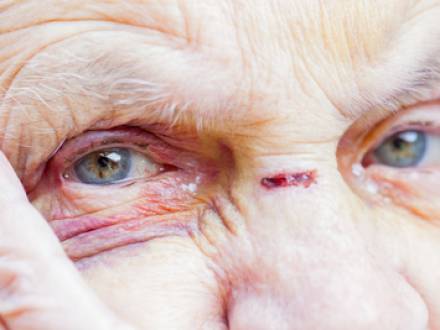
FREE CONSULTATIONS
8585-ADVICE
Maryland’s Enhanced Penalties for Elder Abuse and Assault
 Facing assault charges in Maryland is serious enough, but if the alleged victim is considered elderly or "vulnerable," the stakes rise significantly. Maryland Criminal Law Sections 3-604 and 3-605 allow prosecutors in the state to seek enhanced penalties for assault when the victim is elderly, disabled, or dependent on the accused for his or her care. The term "vulnerable" is not always as clear-cut as it might seem.
Facing assault charges in Maryland is serious enough, but if the alleged victim is considered elderly or "vulnerable," the stakes rise significantly. Maryland Criminal Law Sections 3-604 and 3-605 allow prosecutors in the state to seek enhanced penalties for assault when the victim is elderly, disabled, or dependent on the accused for his or her care. The term "vulnerable" is not always as clear-cut as it might seem.
Age alone does not necessarily qualify a person as vulnerable; therefore, the state must prove the existence of specific physical, mental, or situational factors. If you are facing enhanced assault penalties because your alleged victim has been deemed "vulnerable," it is extremely important that you consult with a Northern Baltimore County, MD criminal defense lawyer who will fight for your rights and your future.
What are the Key Differences Between Standard Assault and Elder or Vulnerable Assault?
"Standard" assault in Maryland is either second-degree, which is a misdemeanor, or first-degree, which is a felony. Second-degree assault involves nonconsensual touching like shoving or punching, or intentionally causing or attempting to cause physical injury that does not require serious medical intervention. First-degree assault is an assault with the intent to cause serious physical injury, an assault involving a firearm, or an assault that causes serious injury or strangulation.
Second-degree assault has potential penalties of up to 10 years in prison and a fine of up to $2,500, while first-degree assault has potential penalties of up to 25 years in prison. The key difference between "standard" assault and assault of an elderly or vulnerable person is the enhanced classification; assault of an elderly or vulnerable person is always a felony with broader evidentiary standards involving dependency or care relationships.
How is a Vulnerable Adult Defined in Maryland?
A vulnerable adult generally lacks the physical or mental capacity to provide for his or her own day-to-day needs. Prosecutors usually look for an adult of advanced age (68 +), a person with a documented medical condition like dementia, a stroke, or mobility impairment, or one who is dependent on another person for medication, hygiene, or food.
It should be noted that a healthy, fully mobile, independent senior does not automatically qualify as a vulnerable adult. The prosecutor must directly connect a loss of capacity to the alleged assault. It is the burden of the state to prove vulnerability through the following:
- Medical records
- Caregiver testimony
- Physicians, nurses, or adult-protection investigators
- Prior Adult Protective Services (APS) reports
Physically functional adults with dementia or Alzheimer’s may be classified as vulnerable adults. If the defendant was a caretaker, roommate, or family member assisting a vulnerable individual, the prosecution could argue that the defendant abused their trust.
How a Defense Attorney Can Counter a Claim of "Vulnerability"
A defense attorney may challenge any non-specialist opinions of vulnerability by demonstrating that the alleged victim managed his or her own finances, drove, or lived independently. If the state is alleging abuse of trust, the defense attorney may show that the defendant was not contractually or legally responsible for the care of the individual. In some cases, the vulnerability could have been due to a temporary injury or medication rather than a long-term incapacity. If there was mutual confrontation or provocation, the defense attorney can demonstrate that the abuse was not one-sided.
Consult a Harford County, MD Assault Lawyer
The sooner you have a Northern Baltimore County, MD criminal defense attorney from Baltimore Legal Services as your advocate, the better outcome you are likely to experience. Early case review will determine whether the alleged victim qualifies as "vulnerable," and your attorney may be able to negotiate a charge reduction from an elder abuse felony to "standard" second-degree assault. Our attorneys are available 24/7 and have helped over 10,000 clients charged with a criminal offense. We also provide a custom flat fee to make our services more affordable. Call 858-523-8423 today to schedule your free consultation and discuss your case.




 CALL US
CALL US TEXT US
TEXT US EMAIL US
EMAIL US
